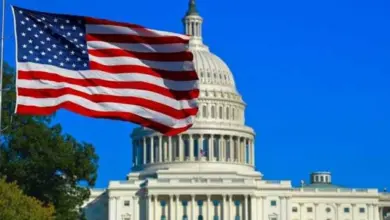“Global Sister Cities and Twinning Summit”, a three-day series of conferences that ended Friday at the Fairmont Nile Tower, brought together leaders from citizen diplomacy organizations to discuss the key role played by the people-to-people type of diplomacy. Among the various topics discussed – ranging from good governance, economic development, the impact of young people in international relations, and the importance of sub-national dialogue – was the vast, complex and highly geostrategic topic of water management and distribution in the Middle East. Home to not more than 5 percent of the world’s population, the Middle East gets less than 1 percent of the world’s water resources. It is the poorest region worldwide in terms of water availability, and its per capita water availability is only 15 percent of African levels.
Water has been a source of tensions for a century in the region and frictions often arise, sometimes putting neighboring countries on the brink of war over water sharing. But the crisis is currently accelerating, and various factors are precipitating the need for a concerted effort towards proper interstate management of water resources. The region’s rapidly growing population consumes water at a much faster rate than can be replenished naturally. One of the consequences of this population growth is the stress put on the agricultural and industry sectors.
Intensive agricultural practices are relied upon to cope with the growing demand for food, which exhaust the soil and speed up desertification, while the implementation cost of drip irrigation systems deter most farmers, who continue wasting huge amounts of water.
Nile Basin water sharing is a very sensitive topic that plagues relations between Egypt, Sudan and Ethiopia. Meanwhile relations between Turkey, Syria and Iraq are strained over the Tigris and Euphrates rivers, as their flows are regulated upstream by Turkey. And of course, at the very heart of the region, Israel, Palestine and Jordan are fighting over water supplies.
According to Gidon Bromberg, an Israeli environmentalist who heads the tri-lateral organization “Friends of the Earth Middle East” along with Palestinian and Jordanian counterparts, the unequal distribution of water between Israel and Palestine amounts to 80-20 percent. “This high disparity is directly related to Israel’s domination over the Palestinian water economy,” he admits, adding that the only long-term solution for fair water sharing is the creation of a Palestinian state and the partition of Jerusalem.
Friends of the Earth Middle East is an environmental peacekeeping movement that brings together Jordanian, Palestinian and Israeli environmentalists to promote cooperative efforts to protect the three countries’ shared environment. “Of course, while we are looking to find common solutions for our region’s sustainable development, our bigger goal is the creation of a lasting peace through people-to-people initiatives and dialogue,” Bromberg explains. He says that given the trans-boundary nature of water resources – the Jordan river, the Dead Sea, and mountain and coastal aquifers – initiatives need to be taken together to exploit these resources in a sustainable manner.
Although a Joint Water Committee (JWC) was set up following the 1994 Israel-Jordan Peace Treaty and the 1995 Oslo Interim agreement between Israel and the Palestinian Authority, it has proven inadequate – as reflected by the inequitable water allocation and the deterioration of shared waters.
In order to bring communities and people together, Friends of the Earth Middle East launched the “Good water neighbors” program in 2001, which set up 29 communities in the three countries, each community sharing a common water resource (stream, lake or aquifer) across a political boundary. “Words have a strong impact on the public consciousness,” Bromberg explains. “Neighbors is a term that replaces enemies in this case, and it is really important because no one wants to deprive his neighbor of water, the basic of human life.”
The Jordan river, considered holy by half the planet, has suffered dramatically from regional conflicts and from Jordan’s water greed. Ninety-eight percent of its fresh water has now disappeared, and the rest is mostly sewage.
The Dead Sea, which is the terminal lake of the Jordan river, has deteriorated enormously due to this lack of water and its area has shrunk by a third. It loses one meter in depth every year.
“What our governments need to understand is that we are completely interconnected through water," explains Bromberg. “If the Palestinians, because of a poor water allocation, do not invest in water treatment of the mountain aquifer, Israel, located below Palestine, receives all the sewage water that flows down and both peoples get polluted water.”
Expanding the scope of Friends of the Earth Middle East’s action, Bromberg explains that there should be consultation and cooperation between Israel, Egypt, Jordan and Saudi Arabia for the protection of the shared Gulf of Aqaba. “The absence of dialogue gives birth to very unsustainable projects. Instead of having one airport for Taba, Eilat and Aqaba, we have three. The same with ports, located 10km from one another!” He adds that the deterioration of the coral reef in this narrow body of water, which suffers from intensive shipping, should also be addressed commonly.
“We desperately need a civil society connection between Israel and Egypt on many levels. People need to know and meet each other, because leaving these matters in the hand of the leadership is a great risk,” he concludes.




